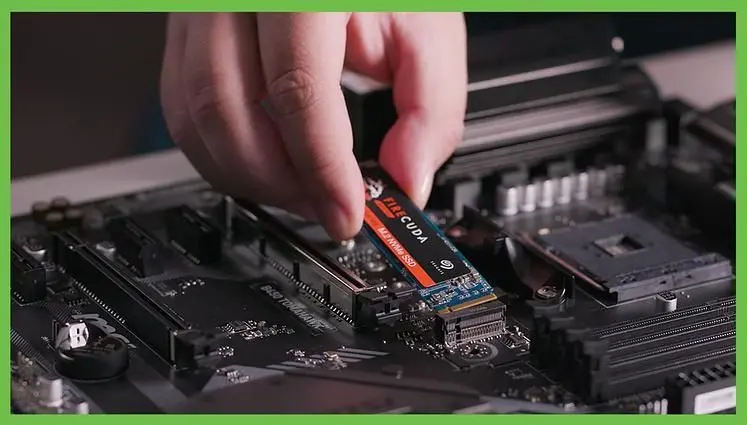Speed has always been a cornerstone of gaming, but in 2025 it has evolved from a luxury into an absolute expectation. Mobile gamers and desktop players alike demand instant responsiveness, making it non‑negotiable. The days of waiting for loading bars or sluggish menus are over. Gamers now demand nearinstant action the moment they press “play.”
The global online gaming market is expected to grow from $208 billion in 2024 to roughly $225 billion by the end of 2025, with much of that growth driven by faster delivery and lower latency across devices. Mobile titles represent 49% of total gaming revenue, while PC gaming retains about 23%, showing that both platforms now compete on speed, accessibility, and convenience rather than raw hardware alone. This reflects the rising influence of mobile gamers in shaping performance standards across the industry.
Gamers’ tolerance for delay has never been lower. Every second of gaming lag risks a player closing a game entirely and with competition so fierce.
Speed Expectations Now Start Before the Game Even Loads
Modern gaming performance extends far beyond in‑game frame rates. It now begins with how fast a game launches, updates, and connects. Developers are racing to reduce load times and deliver “instant start” experiences that align with broader digital expectations for both traditional and mobile gamers.
On PC, the hardware ecosystem is advancing rapidly to meet these needs. According to Tom’s Hardware, AMD processors now power over 40% of Steam users’ systems. That reflects a widespread shift toward CPUs designed for ultra‑low latency and high throughput. Faster SSDs and GPUs have also shortened loading times dramatically, while background asset streaming ensures games remain smooth even as they fetch new content on the fly, a performance bar that even mobile gamers have come to expect.
But nowhere is this demand for instant responsiveness clearer than on mobile. Players expect to jump into a session in seconds. This is where playing mobile slots at MrQ reflects the new normal of speed‑first design. These mobile experiences are built entirely for performance and simplicity with no app download required, fast browser‑based play, and smooth compatibility across iOS and Android. Each session is designed to start instantly and run seamlessly. It offers real cash wins, quick deposits via PayPal or card, and gameplay optimized for every device. It’s a model that mirrors the wider gaming world which is frictionless, portable, and always ready.
Cloud and web gaming frameworks in the mobile space rely on predictive AI to pre‑render assets and minimize perceived lag. By compressing graphics in real time and optimizing frame delivery, they reduce latency by as much as 25% compared to 2023 benchmarks. These breakthroughs make browser‑based mobile gaming smoother than ever, erasing the old divide between local and streamed play.
Mobile, Cloud, and Cross‑Platform All Demand Speed
The boundary between platforms continues to blur, and speed is the common thread uniting them. Players now expect identical responsiveness whether gaming on desktop, console, or phone, especially in the mobile gaming space where performance expectations have skyrocketed. Technologies such as HTML5 and Progressive Web Apps (PWAs) have become the backbone of this transformation, allowing games to run directly in browsers with console‑like fidelity and zero installation time.
Modern cloud gaming requires a sustained bandwidth of 10–20 Mbps and extremely low latency to maintain fluid visuals and responsive controls. Newer AI‑driven methods such as “super‑resolution rendering” predict player movement and pre‑load assets, cutting visible lag to milliseconds. Adaptive frame‑rate estimation on mobile devices can improve gameplay stability by over 30%, even on mid‑tier hardware.
These technologies are why fast‑loading mobile experiences, like those delivered entirely in‑browsers, are becoming the standard. HTML5-based builds eliminate unnecessary app stores and background updates, providing immediate playability and better cross‑device synchronization.
The Cost of Lag Is Higher Than Ever
Speed also has a psychological dimension. Players now equate fast performance with trust and quality. Over 51% of all gaming time worldwide happens on mobile, and the average player spends 9.4 hours per week gaming online. Crucially, if a game takes longer than five seconds to load, drop‑off rates spike sharply. This means every frame counts. This is a clear indicator of how critical speed has become for mobile gaming engagement.
For developers, that statistic has changed priorities. Studios now treat performance optimization as a core design stage. Many have integrated automated performance profiling tools that test games across devices. The Steam Hardware Survey confirms, even mainstream PC gamers now consider 16 GB of RAM the minimum, while 32 GB configurations are quickly becoming the norm for those seeking maximum smoothness.
Also, gaming lag erodes loyalty. Studies on cloud gaming latency reveal that even minor response delays can reduce session length by up to 17%. Conversely, smoother early interactions correlate with significantly higher retention and monetization.
Speed Is the Standard — Not a Feature
The modern mobile gamer’s patience has been compressed into milliseconds. They expect their devices to anticipate every action. From PC esports competitions running at 144 Hz+ refresh rates to browser‑based mobile titles that load in under a second, mobile gaming has welcomed speed as the universal metric for quality.
Speed defines immersion, satisfaction, and trust. Mobile games that win in 2025 are the ones that load without hesitation, respond instantly, and remove every obstacle between the player’s intent and the on‑screen result.
In 2025, speed is the foundation of mobile gaming itself and the invisible force separating the future of play from the lag of the past.
For the latest gaming news, follow GameWatcher on BlueSky, check out our videos on YouTube, or give us a like on Facebook. We sometimes include affiliate links in our posts, which grants us a small commission, thank you. Please support independent Games Media. ❤️






